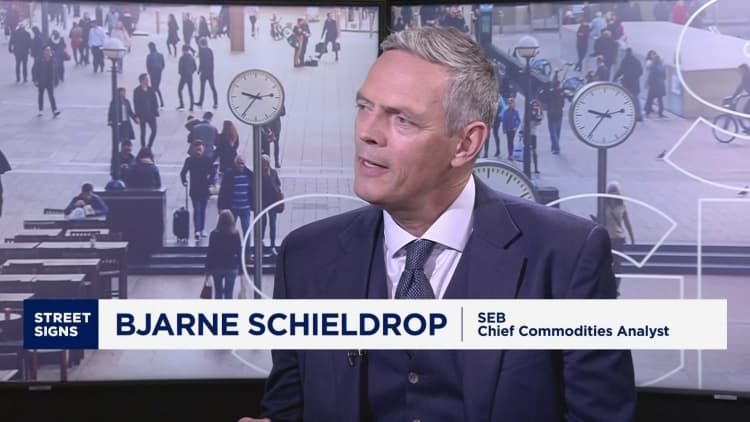- U.S. crude oil has gained nearly 5% this week as traders fear Israel could retaliate against Iran by hitting crude infrastructure.
- OPEC+ spare oil capacity is keeping prices from running higher, analysts say.
- A strike by Israel against Iran could raise fears of a disruption in the Strait of Hormuz and add a significant price risk premium.
U.S. crude oil prices rose nearly 2% on Thursday for a third consecutive session of gains, as the market braces for Israel to retaliate against Iran.
The risk of oil supply disruptions increases as fighting in the Middle East intensifies, but OPEC+ is sitting on a large amount of spare crude that could step into the breach, according to Claudio Galimberti, chief economist at Rystad Energy.
U.S. crude oil has gained 5% this week.
Here are Thursday’s energy prices:
- West Texas Intermediate November contract: $71.53 per barrel, up $1.46, or 2.08%. Year to date, U.S. crude oil is nearly flat.
- Brent December contract: $75.29 per barrel, up $1.39, or 1.88%. Year to date, the global benchmark has fallen more than 2%.
- RBOB Gasoline November contract: $2.0242 per gallon, up 1.93%. Year to date, gasoline has pulled back nearly 4%.
- Natural Gas November contract: $2.0243 per thousand cubic feet, up 1.98%. Year to date, gas has gained more than 16%.
“This spare capacity is for now preventing runaway prices amid one of the deepest and most pervasive crises in the Middle East in the past four decades,” Galimberti told clients in a Thursday note.
OPEC+ spare capacity would be sufficient to cover a disruption to Iran’s exports if Israel strikes the Islamic Republic’s oil infrastructure as retaliation for Tehran’s ballistic missile attack, said Bjarne Schieldrop, chief commodities analyst at the Swedish bank SEB.
But traders would begin to worry about supply disruptions in the Strait of Hormuz, Schieldrop said. “That would add a significant risk premium to oil,” he told CNBC’s “Street Signs Europe.”
As a consequence, oil prices could surge to $200 per barrel if Israel hits Iran’s oil infrastructure, he said.













